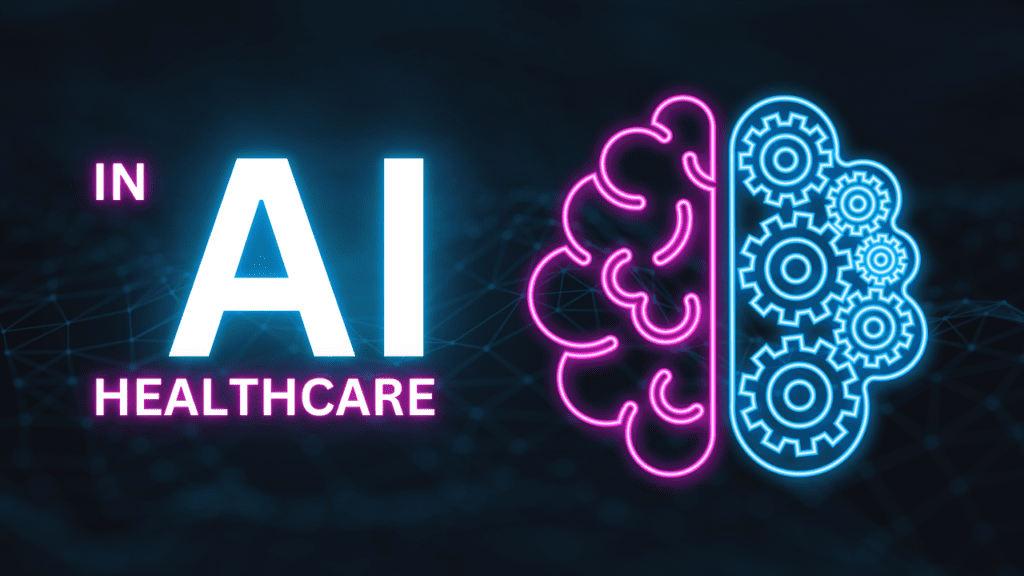
AI is quickly transforming many different businesses, and one of those is AI in healthcare sector is no exception. Artificial intelligence (AI) has the potential to greatly enhance patient care and overall healthcare results, from more precise disease diagnosis to customized treatment regimens. This blog explores the various ways artificial intelligence (AI) is changing healthcare, the difficulties it faces, and the bright future it holds.
1. Introduction: The Intersection of AI and Healthcare
Healthcare has always been a field that relies on data—patient histories, diagnostic tests, treatment outcomes—all are data points that inform medical decisions. With the advent of AI, the ability to process and analyze vast amounts of this data has transformed how we approach medical care. AI’s ability to learn, adapt, and predict is bringing about changes that were once the stuff of science fiction. Today, AI is not only assisting doctors but also improving patient outcomes, making healthcare more accessible, and even driving down costs.
2. AI in Diagnostics: Accuracy and Early Detection
One of the most significant ways AI is transforming healthcare is through diagnostics. Traditionally, diagnosing diseases relied heavily on the experience and intuition of medical professionals. However, even the most skilled practitioners can miss subtle signs of illness. AI changes this by leveraging machine learning algorithms to detect patterns that might be invisible to the human eye.
Radiology and Imaging:
In radiology, AI algorithms can analyze medical images—such as X-rays, MRIs, and CT scans—faster and often more accurately than humans. For example, AI can detect early signs of cancer in imaging studies, sometimes months before a radiologist would typically recognize them. This early detection is critical in treating diseases like cancer, where early intervention can dramatically improve outcomes.
Pathology:
AI is also making waves in pathology, where it can analyze tissue samples to identify abnormalities with high precision. By automating the analysis of slides, AI reduces the workload on pathologists and increases diagnostic accuracy, ensuring that diseases like cancer are caught early.
Predictive Analytics:
Beyond imaging, AI is being used for predictive analytics—anticipating potential health issues before they become serious. By analyzing patient data, AI can predict the likelihood of conditions like heart disease, diabetes, or stroke, allowing for preventive measures to be taken.
3.Personalized Medicine: Tailoring Treatment to Individuals
One of the most exciting prospects of AI in healthcare is its ability to enable personalized medicine. Every patient is unique, and AI allows for treatment plans that are tailored to the individual rather than the one-size-fits-all approach that has traditionally dominated medicine.
Genomics:
In genomics, AI can analyze a patient’s genetic makeup to predict how they will respond to different treatments. This allows doctors to create personalized treatment plans that are more effective and have fewer side effects. For instance, in cancer treatment, AI can help identify the best combination of therapies based on the genetic mutations present in a patient’s tumor.
Drug Development:
AI is also speeding up the drug development process, which has traditionally been a long and expensive endeavor. By analyzing vast datasets, AI can identify potential drug candidates more quickly, predict how they will behave in the human body, and even identify existing drugs that could be repurposed for new uses. This not only accelerates the development of new treatments but also reduces the cost, making life-saving drugs more accessible to patients.
Treatment Monitoring and Adjustment:
AI is also being used to monitor patients’ responses to treatment in real time. For example, AI-powered wearable devices can continuously monitor a patient’s vital signs and alert doctors if adjustments to their treatment are needed. This ensures that patients receive the most effective care possible, reducing the risk of complications and improving outcomes.
4.AI in Surgery: Enhancing Precision and Reducing Risks
Surgical procedures have always carried a certain level of risk, but AI is helping to minimize these risks by enhancing the precision of surgeries.
Robotic-Assisted Surgery:
AI-powered robotic surgery systems, such as the da Vinci Surgical System, allow surgeons to perform complex procedures with greater precision, flexibility, and control than is possible with conventional techniques. These systems can make smaller, more precise incisions, which reduces recovery time and minimizes the risk of complications. Moreover, AI algorithms can guide these robots during surgery, ensuring that every move is calculated and exact.
Preoperative Planning:
Preoperative planning is another area in which AI is very important. AI can assist surgeons in determining the optimal course of action for each patient by evaluating data and medical pictures from prior procedures. To guarantee the optimum result, this may entail modeling various situations, forecasting possible issues, and refining the surgical strategy.
5. AI in Patient Care: Making Healthcare More Accessible and Efficient
Beyond diagnostics and treatment, AI is making healthcare more accessible and efficient, improving the patient experience in various ways.
Virtual Health Assistants:
AI-powered virtual health assistants, such as chatbots and voice-activated systems, are becoming increasingly popular. These tools can answer patients’ questions, provide medical advice, and even remind them to take their medication. This not only empowers patients to take control of their health but also frees up healthcare providers to focus on more complex cases.
Remote Monitoring:
AI is also playing a critical role in remote patient monitoring. Wearable devices that track vital signs, such as heart rate, blood pressure, and glucose levels, are becoming more advanced thanks to AI. These devices can detect abnormalities and alert healthcare providers, allowing for early intervention. This is particularly valuable for managing chronic conditions, where regular monitoring is essential to prevent complications.
Telemedicine:
The COVID-19 pandemic accelerated the adoption of telemedicine, and AI is further enhancing its capabilities. AI can triage patients, determining whether they need to see a doctor in person or if their issue can be resolved remotely. AI can also assist doctors during virtual consultations by analyzing patient data in real-time, providing insights that help guide treatment decisions.
6. Challenges and Ethical Considerations
While the potential of AI in healthcare is vast, it is not without challenges and ethical considerations.
Data Privacy and Security:
AI relies on large amounts of data to function effectively, and in healthcare, this data often includes sensitive patient information. Ensuring that this data is protected and used responsibly is a significant challenge. Healthcare organizations must implement robust data privacy and security measures to prevent breaches and ensure patient trust.
Bias in AI Algorithms:
The possibility for prejudice in AI systems presents another difficulty. Care inequalities may occur from biased AI system training outcomes if the training data is not representative of the population as a whole. An AI system might not function as well for patients from different demographic groups, for instance, if it was trained mostly on data from that group. To solve this problem, continual attempts to guarantee the fairness and objectivity of the data used to train AI systems are necessary.
Ethical Decision-Making:
The use of AI systems in decision-making that affects patient care is growing, which raises moral concerns about transparency and responsibility. If an AI system commits a mistake, who is accountable? How can patients be certain that judgments made by AI are made with their best interests in mind? These are complicated problems that need to be carefully thought through and have precise rules and regulations developed.
7. The Future of AI in Healthcare
Despite the challenges, the future of AI in healthcare is incredibly promising. As AI technology continues to advance, we can expect even more significant breakthroughs in diagnostics, treatment, and patient care.
Integration with Other Technologies:
More and more, artificial intelligence (AI) will be combined with other cutting-edge technologies, like blockchain and the Internet of Things (IoT), to provide more secure and all-encompassing healthcare solutions. AI-enabled Internet of Things (IoT) devices have the potential to securely exchange health data with healthcare professionals and continuously monitor patients’ conditions, hence facilitating more proactive and individualized care.
AI and Preventive Care:
In the future, AI will play an even more significant role in preventive care. By analyzing data from a wide range of sources—such as genetic information, lifestyle factors, and environmental data—AI will be able to predict health issues before they arise and suggest personalized interventions to prevent them.
Collaboration Between AI and Healthcare Professionals:
Rather than replacing healthcare professionals, AI will work alongside them, enhancing their capabilities and allowing them to focus on what they do best: caring for patients. AI will handle routine tasks and data analysis, while doctors and nurses will focus on providing compassionate, patient-centered care.
8. Conclusion: Embracing the AI-Driven Future of Healthcare
AI is poised to revolutionize healthcare in ways that were once unimaginable. From improving diagnostics and personalizing treatment to making healthcare more accessible and efficient, AI has the potential to enhance every aspect of patient care. However, to fully realize this potential, it is essential to address the challenges and ethical considerations that come with it.
As we move forward, the collaboration between AI and healthcare professionals will be key to creating a healthcare system that is not only more advanced but also more human-centered. By embracing AI, we can create a future where healthcare is more accurate, personalized, and accessible to all.
Our path is far from over, with many possibilities ahead of us. With help of AI, the healthcare field will soon go through a revolution that will transform millions of people’s lives and bring in a new era of medical practice.
One of the most exciting prospects of AI in healthcare is its ability to enable personalized medicine. Every patient is unique, and AI allows for treatment plans that are tailored to the individual rather than the one-size-fits-all approach that has traditionally dominated medicine.
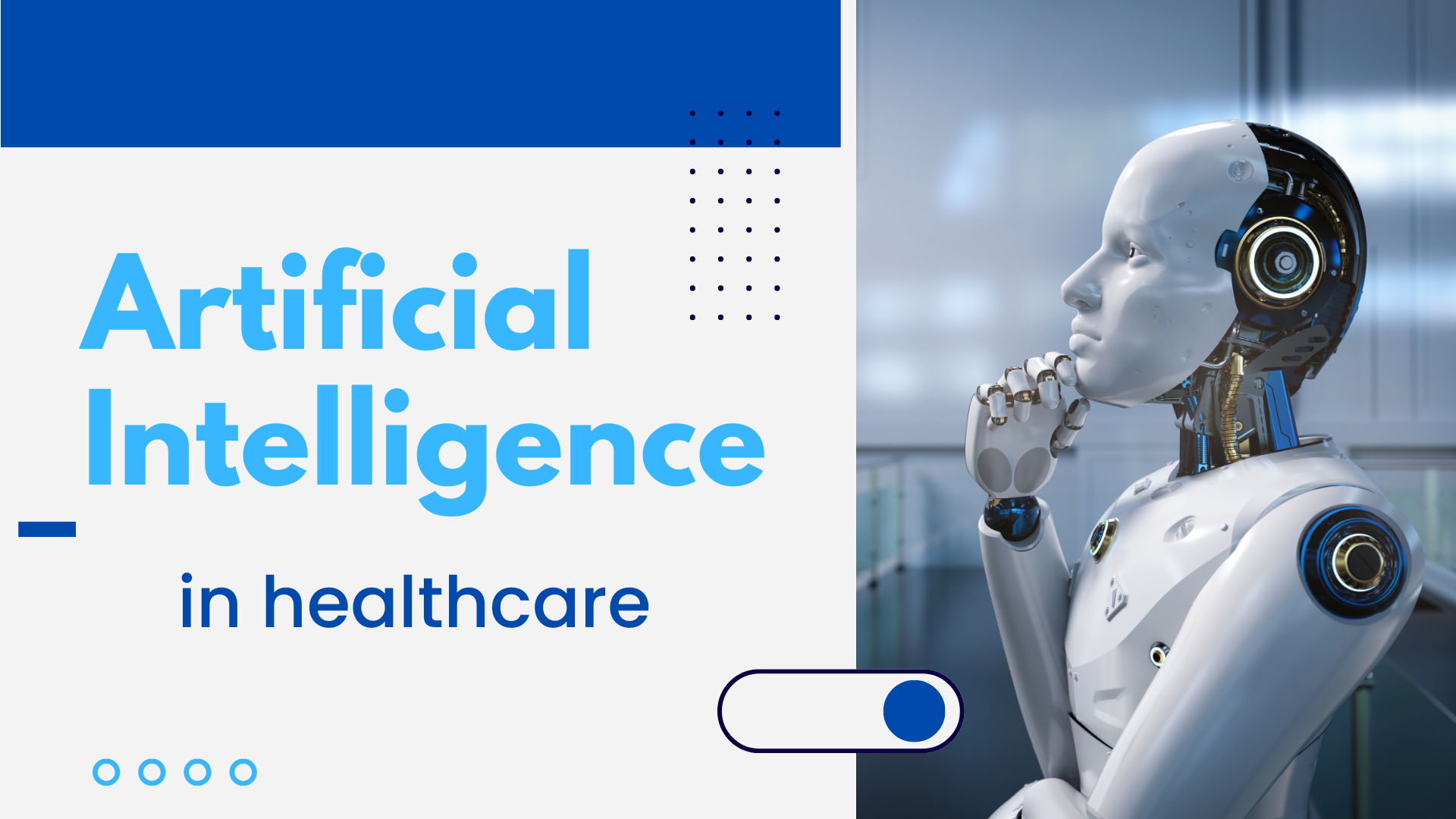
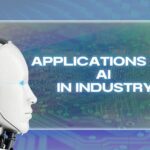

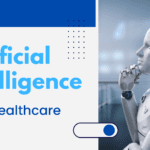
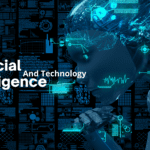
2 thoughts on “AI in Healthcare: Transforming Medicine and Enhancing Patient Care”